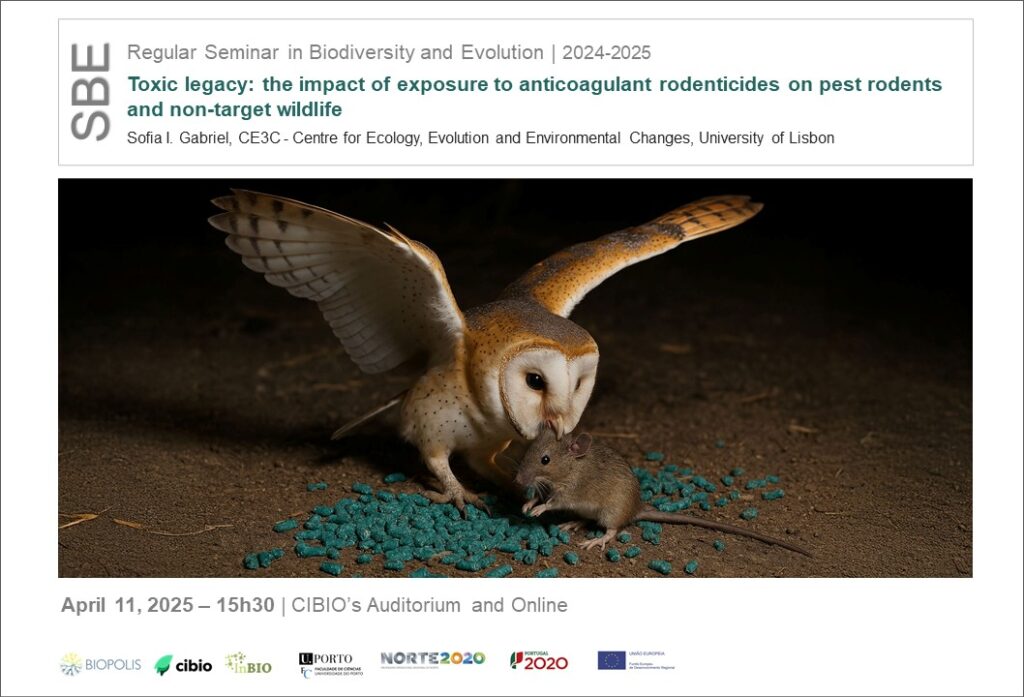
Toxic legacy: the impact of exposure to anticoagulant rodenticides on pest rodents and non-target wildlife
Sofia I. Gabriel, CE3C – Centre for Ecology, Evolution and Environmental Changes, University of Lisbon
April 11, 2025 | 15h30 | Hybrid Seminar (Zoom Link: https://videoconf-colibri.zoom.us/j/99797933081)
Synanthropic rodents are considered major pests worldwide, posing increasing economic and public health risks, against which exhaustive efforts have been made towards the implementation of control/eradication strategies. The use of anticoagulant rodenticides (ARs) is by far the most widely used method for pest control on a global scale, since their development in the 1950s. Their mechanism of action is essentially based on disrupting the blood coagulation cascade, causing internal bleeding, and eventually death. Due to limitations of alternative methods, there is a virtually total reliance on these compounds and no prospects of valid alternatives in a predictable future. While pivotal in controlling rodent populations and preserving various aspects such as infrastructure, agricultural yields, and native biota on islands worldwide, the application of ARs has raised significant concerns about their broader negative impact on non-target species, ecosystems, and public health. The emergence of rodenticide resistance in mice and rats only a few years after the initial use of these biocides added another layer of concern to an already multidimensional problem. Not only rodenticide resistance led to increased difficulties in rodent pest management, as it led to an even greater toxicological impact of ARs, extending far beyond target rodents. Secondary exposure of domestic animals and non-target wildlife, either through direct ingestion of rodenticide bait or by predation of poisoned prey, jeopardizes the animals’ own survival and raises safety concerns about environmental and human health.
More information here